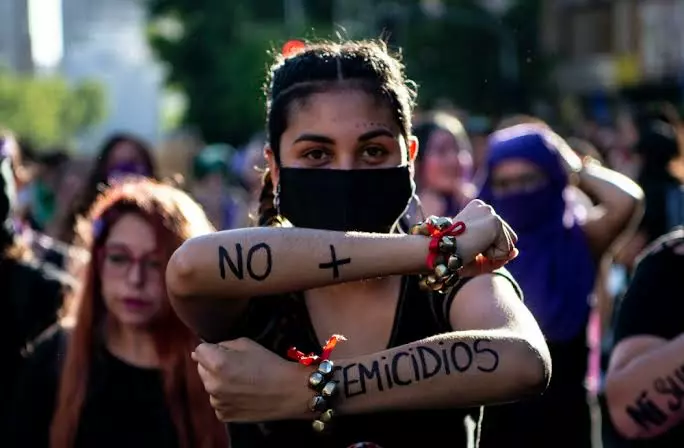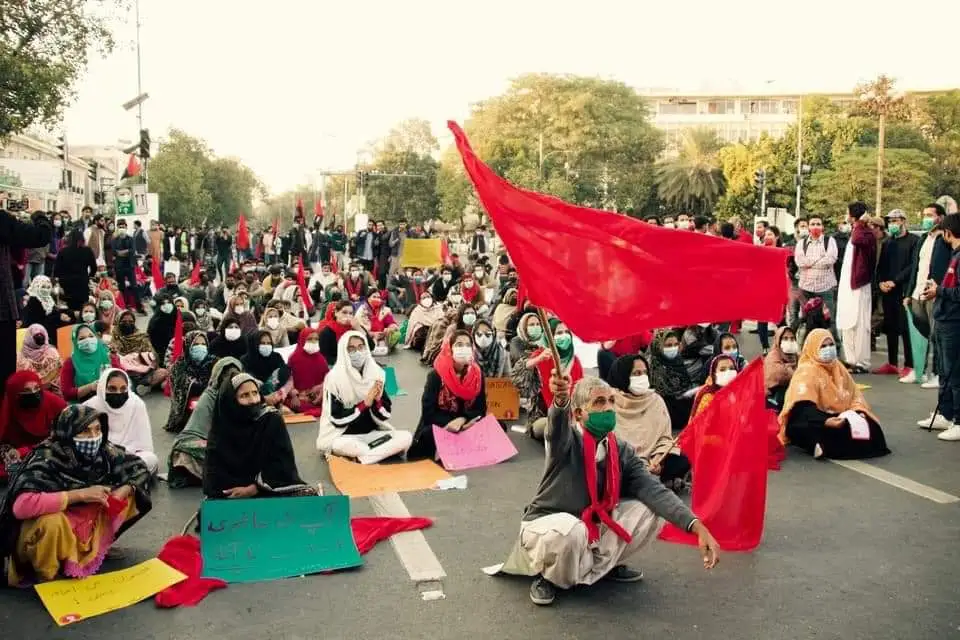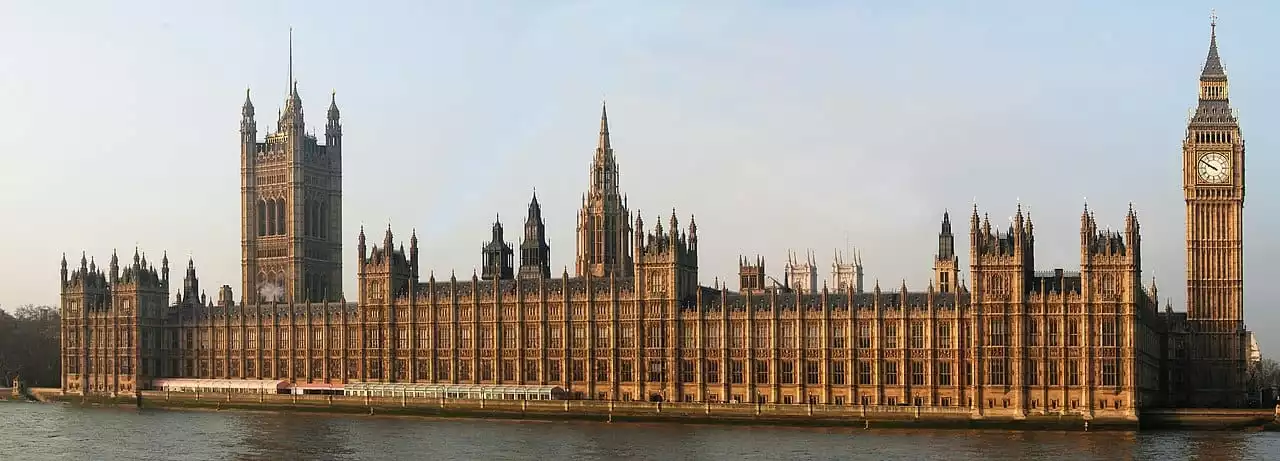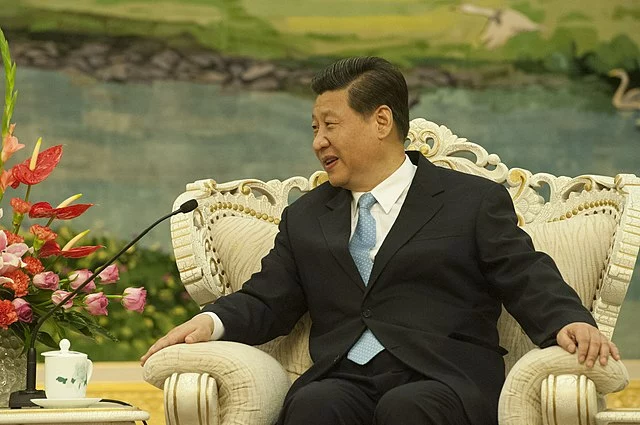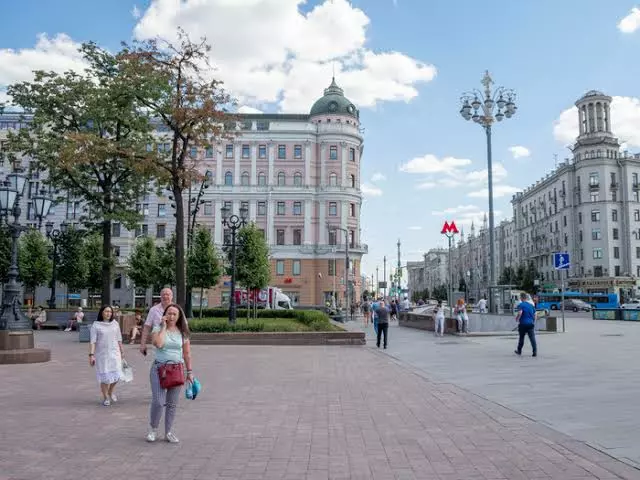“If Chile was the cradle of neoliberalism, it will also be its grave.” These words said by Gabriel Boric (presidential candidate for the left-wing electoral coalition Apruebo Dignidad ) are a breath of fresh air as Chile strives to undo the mess left by Piñera's government. As the Presidential elections are supposed to take place in Chile this Sunday, it is of extreme importance to reflect on the events that will play a crucial role in determining the outcome of the elections.
In a historic win on October, 2020, Chileans celebrated the decision to write a new constitution with gender parity and slogans of Nunca Más Sin Mujeres(Never again without Women) and Chile Despertó(Chile Woke Up). The Plaza de la Dignidad in the city of Santiago which was earlier referred to as the Plaza Italia, was full of masked protestors, cheering, waving the flags of Mapuche and Chile, singing el derecho de vivir en paz (the right to live in peace) of Victor Jarra celebrating the approval of the referendum to write a new constitution. Women wore bright coloured pañuelos(bandanas) tied around their neck or to their wrists, which were either purple for women’s rights or bright green that has come to represent the fight for abortion rights across Latin America. After a year long battle of vehement protests in the Plaza de la dignidad, braving the batons of the nation’s militia of Carabineros and toxic tear gases, the day finally arrived when a constituent assembly would be drafted to frame a new inclusive and gender parity Constitution in Chile.

The 2019-2020 Chilean protest which actually started from the University students protest against the metro fare hike, incited the dormant national rage with the centre-right wing coalition government led by Piñera and his policies that have already ramped up social inequalities with inflation. Since the protests that started in October 2019, more than dozens of protestors had been killed and hundreds wounded by Carabineros, Chile’s national police. The Chileans, especially the University students have repeatedly stood out for their demands and positions against censorship and complicity, on the cessation of dictatorial governments, the democratization of institutions, the rescue of university autonomy, and the inclusion of sectoral agendas in the country plan. A nation which is referred to as the birthplace of neoliberalism and has a history of a violent military coup that removed the Popular Unity-type government, led by socialist president Salvador Allende in 1973 has seen numerous struggles and movements since 1990. However, these student, indigenous, environmental, and all the other social and political movements have been rendered ineffective in front of the implacable Pinochet Constitution. Even though, the Constitution which was drafted during the regime of Augusto Pinochet has been amended several times, to remove the oppressive and authoritarian elements, its essence remains which makes any social, political and economic reform impossible.
The military dictatorship of Pinochet took neoliberalism to a whole new level, deregulating the market and eliminating price controls, much to the detriment of the working class. For women and the Indigenous group, it took oppression to a different level in social and economic aspect which eventually led to their perspectives being lost from the public discourse. However, Chile’s current constitution guarantees equality or non-discrimination based on sex, it does not ensure women’s rights to equality in marriage and stipulates the protection of “life to be born” a clause that has blighted access to legal, safe abortion in the country. This clause makes Chile a nation with the strictest abortion laws in the world which prohibits abortion in all circumstances. Neoliberalism, individualism, and patriarchy have further complicated their daily lives and have especially hindered their ability to participate in the protests. The egregious Constitution had imposed regressive norms and social restrictions on women, work and family obligations, such as childcare demands, which also prohibited them from taking to the streets.
In the words of the Chilean scholar and activist Julieta Kirkwood who once said that Feminism could be a crucial tool for imagining a more just future; feminism means interrogation of all systems of power and most importantly, seeing feminism as a fundamental tool for reimagining and rebuilding a more equitable society for everyone. Kirkwood’s powerful slogan that “no hay democracia sin feminismo” (there is no democracy without feminism), still rings true for Chileans today. With gender parity in the Constitutional Convention, the path may be open for the Chilean Constitution to include guarantees against sexual and domestic violence, rights to equality in pay, reproductive rights, a minimum standard of living, gender quotas, and, more importantly, gender equality.
Since 2006, with the campaign Cuidado! Machismo mata(Careful! Machism Kills), the organisation called La Red Chilena Contra La Violencia Hacia Las Mujeres(The Chilean network of Women against Violence) has spread various messages making visible the different manifestations of violence: physical, psychological, sexual, symbolic, institutional, and economic, among others. Even amidst the COVID19 pandemic, activists found creative ways to use social media to host virtual marches for causes like sexual and reproductive rights, encouraging people to flood Instagram and Twitter with selfies in their green bandanas, and hosting events via Facebook Live.
Many activists and NGOs have been hosting virtual conversations with scholars, lawyers, and other experts to talk about feminist hopes for the new constitution, and to give people opportunities to ask questions about how these crucial political and legal processes will be carried out over the coming years. On the occasion of the International Women’s day, the Chilean feminist collective, Coordinadora Feminista 8M (CF8M), organized the event that combined feminist calls for gender equality with sustained public demands for major structural reforms across all sections of society. Marchers held signs critiquing President Piñera next to signs advocating for bodily autonomy, abortion rights, and an end to femicide and sexual violence.

On November 25, 2019, a Chilean feminist collective, Las Tesis, premiered their performance art piece Un violador en tu camino (A rapist in your path), whose haunting phrase, El Violador Eres Tú (The oppressive state is a rapist. The rapist is you), called attention to the patriarchal state institutions that have allowed violence in the form of rape, femicide, disappearances, and impunity to permeate the lives of Chilean women. Recreations of their Santiago performance, both specific to the Chilean experience and yet relatable to women worldwide were performed throughout Chile and across the world as an anthem against violence to women.
On November 15, 2019, on the event of Latin American Grammy Awards in the US, Chilean singer Mon Laferte bared her breasts in a red carpet protest. She walked the red carpet and uncovered her chest emblazoned with the words En Chile, Torturan, Violan y Matan (In Chile they torture, rape and kill). She has been a supporter of the anti-government protests in the country. Mon Laferte was one of several artists at the Latin Grammys who spoke about the current political climate in Latin American countries.
In 2020, a referendum to draft a new constitution was approved by 78 percent of Chileans. In July 2021, the Chileans voted again for choosing the members of the constituent assembly who would draft the new Constitution. After the vote, a ‘national agreement’ was signed between the government and some opposition parties which established the procedures for the constitutional plebiscite or convention which would draft a new constitution. The new constitution to be drafted by a specially elected body or convention of citizens was to be split equally between men and women, but the initial vote did not reserve seats for Chile´s indigenous groups. Many of the signatories including the Humanists and the Communist Party refused to sign the agreement, arguing that it failed to establish any guaranteed seats for either women or indigenous peoples. Following this, in December 2020, a bill was passed to reserve 17 of 155 seats for representatives of indigenous communities.
The new constituent assembly is expected to try to limit the privileges of the elite with a dominant hold on political power, that still acts as an oligarchy. At the centre of the new constitutional debate will be whether to eliminate an existing section that regulates the power of the State to develop entrepreneurial activities -- which most Chileans believe would lead to new social welfare policies. Most assembly members also aim to promote higher civic participation and better protection of the environment. The re-writing of the country's dictatorship-era Constitution is also expected to enshrine greater equality in healthcare, pensions and education.
However, many of the Latin American countries have re-written their constitutions, the never-ending cycle of military coups, instability, popular discontent, protests and the emergence of new leaders who propose change then disappoint has yet not ended for them. If the new constitutional convention is successful in writing a constitution which would satisfy the needs of the Chileans, it could have a big impact on the rest of Latin America.
